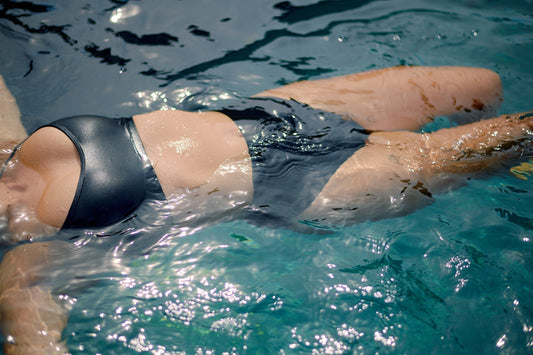
Tips for living a zero waste lifestyle during COVID-19
Guest BloggerHave you been feeling anxious about the state of environmental affairs during COVID-19? When reusable coffee mugs, recycling programs, and cloth tote bags are forbidden, it can be overwhelming to watch the plastic pile up. These zero waste tips will empower you to make sustainable choices at home and in your day-to-day life, no special equipment needed.
Repurpose clothing for donation
That bag of gently-used clothing you were planning on donating? It’s probably still sitting (and maybe even growing) by the front door thanks to COVID-19 restrictions. If you’re unable to donate the clothing to your preferred organization, try repurposing the items for other uses. Socks can be used for general dusting or cleaning blind slats, soft fabrics can be cut or ripped into cleaning rags, and tote bags can be made from a variety of clothing or household linens.
*Note: It’s worth contacting the organization directly about clothing donations as some are still accepting certain much-needed items.
Learn the art of mending
Learning how to mend and alter your own clothes is not only a valuable life skill, it will breathe new life into clothing you thought you’d never wear again. Many mending techniques can be done without the use of a sewing machine and only require a small amount of practice to learn. Whether you’re sewing on a button, patching up a pair of jeans that are worn in the inner thighs, or giving new life to a pair of your favourite Aisle period underwear, this guide to basic hand stitches has you covered. Once you’ve mastered basic mending, you can move onto invisible mending and mending knitted garments!
Optimize plastic-free food storage
Because of COVID-19 restrictions on reusable containers, you might find yourself with more plastic than you would otherwise have lying around the house. While these restrictions vary depending on your location, there are still a few things you can do to reduce your plastic consumption. If possible, buy dried goods such as pasta, coffee beans, and grains in larger quantities, decanting into jars or buckets as needed. Clear containers are especially helpful as they’re a visual reminder of when you need to restock ingredients. Depending on the intended use, clean tea towels and store-bought or DIY beeswax wraps can be used to extend the life of fresh produce, cheese, and bread.
*Note: No jars? Try looking on your local buy-nothing group for free jars, supplementing your collection with upcycled commercial jars.
Look forward to leftovers
If you’ve been working from home and cooking your own meals there’s a good chance you have kitchen fatigue. While it’s advice you’ve undoubtedly heard before, the old adage about leftovers remains true: Cook once, eat twice (or more, depending on how much food you make.) This is true for conventional leftovers, such as soup or pasta, but the same principles can be applied to individual ingredients. Recipes for roasted vegetables (including potatoes and yams), tomato sauce, cooked grains, and homemade condiments can be doubled — or even tripled, depending on the shelf-life of the ingredients. When you’re ready to eat, simply assemble and heat leftovers as desired, adding optional easy protein sources like tofu, eggs, cheese, nuts, poultry, meat, or fish to round out the meal.
Make your own cleaning products
Making your own cleaning products isn’t difficult and only requires a handful of common household ingredients. White vinegar, a popular all-purpose cleaning ingredient, is inexpensive and can be purchased in large quantities. Other helpful DIY cleaning solution chemicals to have on hand include baking soda, hydrogen peroxide, castile soap, and lemon juice. Be aware that while the chemicals in your homemade cleaners may be harmless on their own, they still have the potential to cause harm if mishandled or misused. Keep in mind that only disinfectants on this list are approved for use against COVID-19.
Ashley Linkletter is a mental health, food, and nutrition writer based in Vancouver, BC.
Photo by Daiga Ellaby on Unsplash




